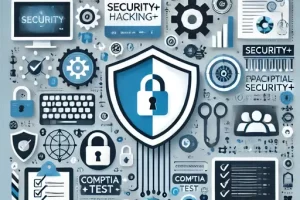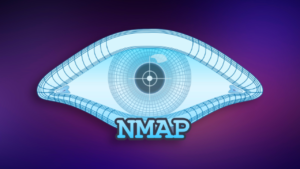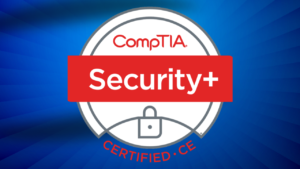Understanding Ethical Hacking and Its Usefulness in Today’s Digital World
- Categories CEH Certified Ethical Hacker, Practical Ethical Hacking and Cyber security
- Date July 12, 2024
Understanding Ethical Hacking and Its Usefulness in Today’s Digital World
In today’s digital age, cybersecurity is a paramount concern for organizations and individuals alike. With the increasing frequency of cyberattacks, the need for skilled professionals who can safeguard sensitive information and systems has never been greater. This is where ethical hacking comes into play. But what exactly is ethical hacking, and why is it so important? Let’s delve into the details.
What is Ethical Hacking?
Ethical hacking, also known as penetration testing or white-hat hacking, involves the authorized testing of computer systems, networks, and applications to identify and fix security vulnerabilities. Ethical hackers use the same techniques and tools as malicious hackers, but with the permission of the system owner and with the goal of improving security.
Ethical hackers aim to mimic the actions of cybercriminals to uncover weaknesses in a system before they can be exploited. They provide a critical service by finding and addressing potential threats, thereby strengthening the security posture of an organization.
The Importance of Ethical Hacking
-
Identifying Vulnerabilities: Ethical hackers play a crucial role in identifying security flaws in an organization’s infrastructure. By conducting comprehensive assessments, they can pinpoint weaknesses that could be exploited by malicious actors. This proactive approach allows organizations to address vulnerabilities before they become serious threats.
-
Preventing Data Breaches: Data breaches can have devastating consequences, including financial loss, reputational damage, and legal repercussions. Ethical hackers help prevent these incidents by testing and securing systems, ensuring that sensitive information remains protected.
-
Ensuring Compliance: Many industries are subject to strict regulatory requirements regarding data protection and privacy. Ethical hacking helps organizations comply with these regulations by ensuring that their systems meet the necessary security standards. This can prevent costly fines and penalties associated with non-compliance.
-
Enhancing Security Measures: Ethical hackers provide valuable insights into the effectiveness of an organization’s existing security measures. By simulating real-world attacks, they can assess how well current defenses hold up and recommend improvements. This continuous evaluation and enhancement of security practices are vital for staying ahead of evolving threats.
-
Building Trust with Stakeholders: Demonstrating a commitment to cybersecurity can build trust with customers, partners, and stakeholders. When an organization invests in ethical hacking, it shows that it takes the protection of sensitive information seriously. This can enhance the organization’s reputation and foster stronger relationships with its audience.
The Ethical Hacking Process
The ethical hacking process typically involves several key steps:
-
Reconnaissance: Gathering information about the target system or network, including IP addresses, domain names, and other relevant details.
-
Scanning: Using various tools and techniques to scan the target for open ports, services, and potential vulnerabilities.
-
Gaining Access: Attempting to exploit identified vulnerabilities to gain access to the target system, simulating how a real attacker might breach the system.
-
Maintaining Access: Once access is gained, maintaining a foothold within the system to understand the extent of potential damage a real attacker could cause.
-
Analysis and Reporting: Analyzing findings and compiling a detailed report outlining the vulnerabilities discovered, the methods used to exploit them, and recommendations for remediation.
Ethical Hacking in Practice
Organizations of all sizes and across various industries employ ethical hackers to secure their systems. From financial institutions to healthcare providers, ethical hacking services are in high demand. Many ethical hackers also work as independent consultants, offering their expertise to multiple clients.
For those interested in pursuing a career in ethical hacking, numerous certifications and training programs are available. Certifications such as Certified Ethical Hacker (CEH) and Offensive Security Certified Professional (OSCP) are highly regarded in the industry.
Enhance Your Expertise with Additional Resources
To further your cybersecurity skills, consider these essential courses and exam resources:
-
Join the Practical Ethical Hacking Membership Levels for continuous updates and advanced resources to stay ahead in the field.
-
Explore In-Depth Training with the Nmap course, offering hands-on experience and a thorough understanding of network scanning techniques.
-
Prepare Effectively with the CompTIA Security+ SY0-701 Free Practice Exam to assess your readiness and identify areas for improvement.
-
Further Your Expertise by enrolling in the CompTIA Security+ SY0-701 course, which provides comprehensive training and preparation for the Security+ certification.
-
Stay Updated and Inspired by following Cybersecurity and Practical Ethical Hacker Courses on YouTube for the latest insights and practical tips in cybersecurity.
Conclusion
Ethical hacking is an essential component of modern cybersecurity. By identifying and addressing vulnerabilities before they can be exploited, ethical hackers play a vital role in protecting sensitive information and systems. Their work not only prevents data breaches and ensures compliance but also enhances overall security measures and builds trust with stakeholders. As cyber threats continue to evolve, the importance of ethical hacking will only grow, making it a critical field for aspiring cybersecurity professionals.
To learn more about ethical hacking and start your journey in this exciting field, explore the resources and courses available at Practical Ethical Hacking.
The Ultimate Guide to Nmap: Mastering Network Scanning and Cybersecurity
CompTIA Security+ SY0-701 Free Practice Exam Test with PBQs
CompTIA Security+ SY0-701 Full Practice Exam Tests PBQs 2024
Currently pursuing an Advanced Diploma in Cybersecurity, I am dedicated to continuous learning and staying informed about the latest industry developments. Passionate about hacking, I actively enhance my skills through various cybersecurity projects and hold the CompTIA Security+ certification.
You may also like

Securing Network Infrastructure with Segmentation

Best jobs after CompTIA A+ certification




